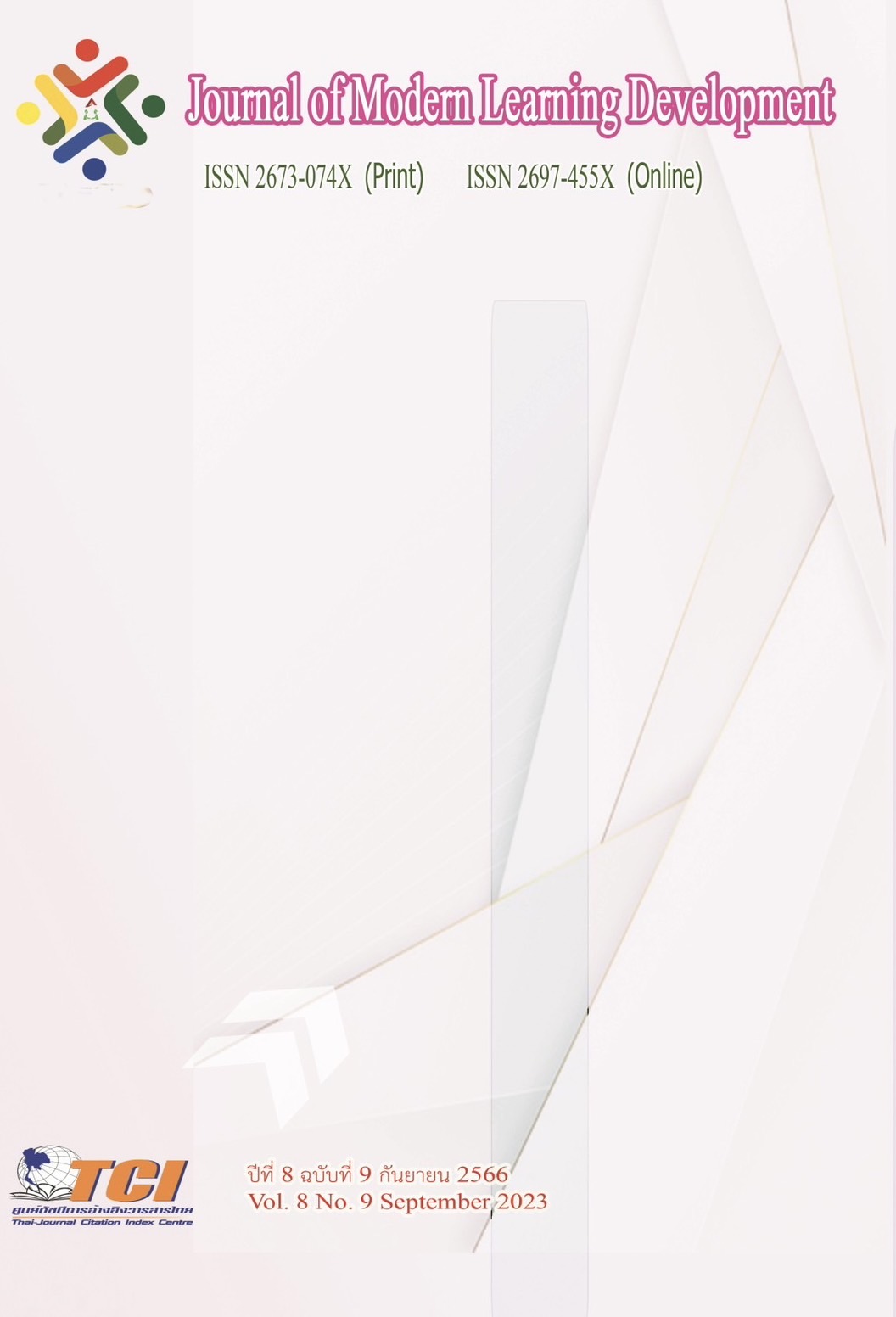From Political Economics to Buddhism Economic
Main Article Content
Abstract
This academic article the purpose of this study was to explain the relationship between the concepts of political economy and the concepts of Buddhism. It was found that political economy in a specific sense means economics developed from the concepts of Karl Marx. Political economy is to discuss economics related to political science. It includes knowledge of mainstream economics led by Adam Smith and political economy led by Karl Marx, both in a broader sense. and group specific meanings with the idea of developing economics or economic knowledge for the well-being of the world's population in which each country has a different form of politics and governance. And the application of knowledge in economics to link politics that aims to achieve equal access to the limited resources of that country, as well as assimilate with the religion, language, law, culture, traditions, etc. of that nation, too.
The application of political economy and Buddhist economics in Thailand. to understand lifestyle and balance between the object and psychologically. Therefore, the importance of Buddhist economic concepts focuses on inner satisfaction, generosity love of humanity talking about morality, ethics, fellowship, etc. This article therefore proposes that application of Buddhist principles in line with the principles of political economy. It may make a great contribution to the individual and the psychological quality of the population.
Article Details
References
กนกศักดิ์ แก้วเทพ. (2559). เศรษฐศาสตร์การเมืองเบื้องต้น. กรุงเทพมหานคร: สยามปริทัศน์.
ชัยอนันต์ สมุทรวาณิช. (2541). ทฤษฎีใหม่ : มิติที่ยิ่งใหญ่ทางความคิด. กรุงเทพมหานคร: สถาบันนโยบายศึกษา.
ชลัท ประเทืองรัตนา. (2563). ความรุนแรงและทางออกกรณีความเห็นต่างทางการเมือง : แสงสว่างที่ปลาย อุโมงค์สาหรับสังคมไทย?. วารสารสถาบันพระปกเกล้า. 9 (1), 101–118.
ณรงค์ เพชรประเสริฐ. (2565). เศรษฐศาสตร์การเมืองคืออะไร. วารสารสังคมศาสตร์และมานุษยวิทยาเชิงพุทธ 7 (6), 33-54.
ประสิทธิ์ เพ็ชรแสนงาม. (2565). ศึกษาแนวทางการประกอบธุรกิจผลิตข้าวหอมมะลิเชิงพุทธของเกษตรกรใน ท้องที่ตำบลชมพู อำเภอเมือง จังหวัดลำปาง. วารสารวิชาการรัฐศาสตร์และรัฐประศาสนศาสตร์. 6 (2), 142-156.
พระครูปลัดสุวัฑฒนพรหมจริยคุณ (คํามาก). (2563). พระพุทธศาสนากับการพัฒนาทางการเมืองการปกครอง ในสังคมไทย. วารสารปัญญาปณิธาน. 5 (1), 1-14.
พระธรรมกิตติวงศ์ (ทองดี สุรเตโช). (2553). พจนานุกรมเพื่อการศึกษาพุทธศาสน์ ชุด คำวัด. กรุงเทพมหานคร: เลี่ยงเซียง.
พระธรรมปิฎก (ป.อ.ปยุตฺโต). (2551). เศรษฐศาสตร์แนวพุทธ. กรุงเทพมหานคร: สหธรรมิก.
พระธรรมปิฎก (ป.อ.ปยุตฺโต). (2540). มาตรฐานชีวิตของชาวพุทธ. กรุงเทพมหานคร: สหธรรมิก.
พุทธทาสภิกขุ. (2547). เตกิจฉกธรรม. สุราษฎร์ธานี: ธรรมทานมูลนิธิ.
พุทธทาสภิกขุ. (2549). ธรรมโฆษณ์ของพุทธทาส เรื่องใครคือใคร. สุราษฎร์ธานี: ธรรมทานมูลนิธิ.
พุทธทาสภิกขุ. (2549). พุทธทาสพุทธธรรม11 : เศรษฐศาสตร์พุทธศาสนา. กรุงเทพมหานคร: สุขภาพใจ.
พุทธทาสภิกขุ. (2555). เศรษฐศาสตร์ชาวพุทธ. กรุงเทพมหานคร: พิมพ์ดี.
มนูญ มุกประดิษฐ์. (2542). จิตวิทยาตามแนวพระราชดำริ. กรุงเทพมหานคร: คณะจิตวิทยา จุฬาลงกรณ์ มหาวิทยาลัย.
วรภัทร แป้นประดิษฐ. (2563). การสื่อสารการเมืองของพระธรรมโกศาจารย์ (พุทธทาสภิกขุ) : ศึกษาในห้วง เวลาปีพ.ศ.2475-2536. วิทยานิพนธ์ปรัชญาดุษฏีบัณฑิต สาขาสื่อสารการเมือง วิทยาลัยสื่อสาร การเมือง. บัณฑิตวิทยาลัย: มหาวิทยาลัยเกริก.
วิพุธ พูลเจริญ. (2544). สุขภาพ อุดมการณ์ และยุทธศาสตร์ทางสังคม. กรุงเทพมหานคร: สถาบันวิจัยระบบ สาธารณสุข.
สมเด็จพระพุทธโฆษาจารย์ (ป.อ.ปยุตฺโต). (2559). เศรษฐศาสตร์แนวพุทธ. กรุงเทพมหานคร: มูลนิธิคีมทอง.
สิงห์คํา มณีจันสุข. (2564). วิวัฒนาการของการปกครอง เศรษฐกิจและสังคมไทย. วารสารวิจยวิชาการ. 4 (1), 255-268.
สุรดา กาลวิบูลย์. (2565). พุทธศาสนากับพลวัตทางความเชื่อในสังคมไทย. วารสารนาคบุตรปริทรรศน์ มหาวิทยาลัยราชภัฏนครศรีธรรมราช. 14 (3), 12-23.


